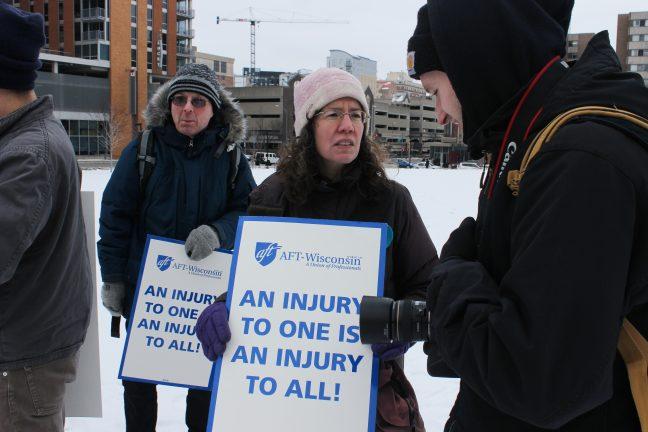Aria Bryan (abryan5@wisc.edu) is a junior majoring in sociology.
Following the #Repealthe19th movement, Susan B. Anthony’s grave was littered with “I Voted” stickers in commemoration of the hero who fought tirelessly for equal rights. Anthony is frequently looked upon as a champion for progress who believed women deserved the right to vote.
Unfortunately, Anthony was specific about the different degrees of equality that should exist within our society.
She wrote, “If you will not give the whole loaf of suffrage to the entire people, give it to the most intelligent first. If intelligence, justice, and morality are to have precedence in the government, let the question of the woman be brought up first and that of the negro last.”
The irony in her statement is undeniable. Just less than a century after white women won the right to vote, supposedly in favor of intelligence, justice and morality, the majority of them voted for President Donald Trump.
I was shocked, then, at all of the white women I saw at the Women’s March that took place last month.
Statistically, some of the women there had to have voted for Trump, who has been notoriously outspoken in his disdain for refugees, immigrants and racial minorities. The fact he won a majority of white women’s votes does not necessarily surprise me.
The problem with dedicating yourself wholeheartedly to a cause is other problems worth fighting for often get overshadowed in the process. For example, I am a woman, but because I am also a racial minority, I tend to make racial causes my top priority. Intersectionality is tricky — injustice is constantly evolving to remain a prominent force within our society. Social justice issues close in from all sides, and remembering that other people’s struggles exist can be difficult.
But that is no excuse to ignore others’ objections because you have the privilege of not knowing what it feels like to face their struggles.
White women conveniently forgot to care about injustice when it threatened to only affect Hispanics, Muslims and black Americans, and were happy to cast a Trump ballot. Now, suddenly, they’re in the streets protesting. Now they realize the man they voted for doesn’t care about them either. So now, it’s serious.
This isn’t to say they shouldn’t protest. We need as many bodies as we can find protecting women’s rights. By all means, attend the Women’s March.
But also attend the Black Lives Matter rallies, the airport shutdowns, the protests for LGBTQ+ rights and the justice for Palestine protests.
When you look to feminist heroes, look to those who embrace people who look different than them, who fight for causes that do not directly impact them and who do not believe certain people deserve to be more equal than others.
Feminism is about inclusivity, equality and accepting people you may not have anything in common with. We need to address oppression when it occurs, whether that be in the fight against Planned Parenthood, the demonization of Muslims or in the exclusion of immigrants.
If injustice anywhere is a threat to justice everywhere, we should continue marching together in the hopes we can all be truly equal, together.


